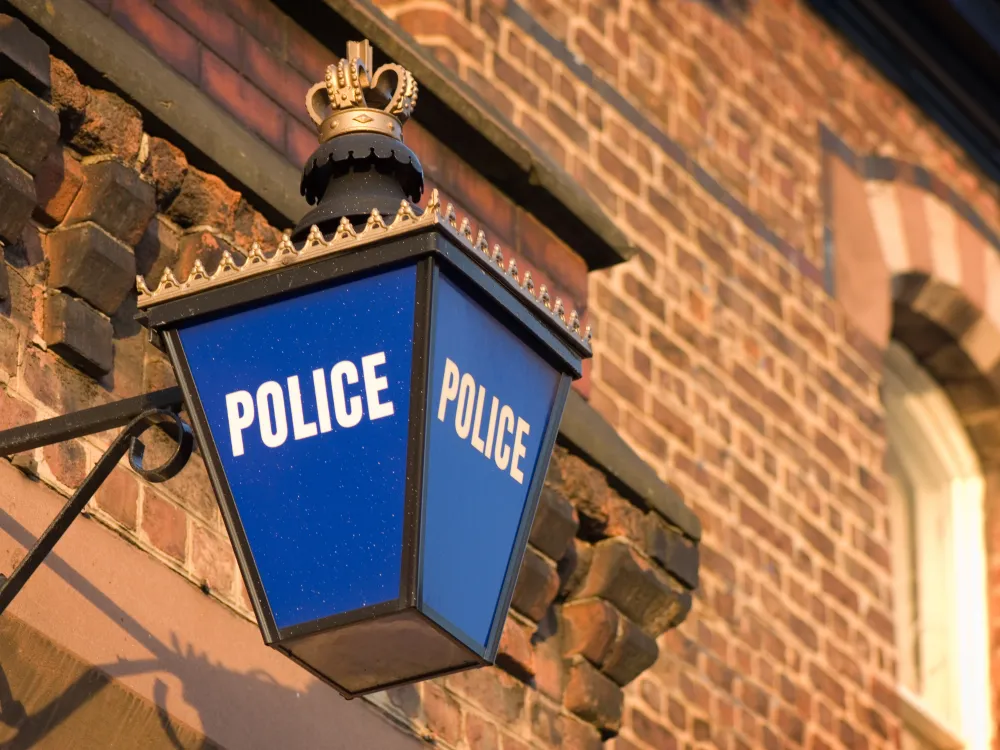
A vintage-style blue police lantern hangs from a brick wall, prominently displaying the word "POLICE" on two sides.
How Much of the UK Government Spending Goes to the Police Force?
Introduction
Decisions about public spending illustrate trade-offs between competing priorities. The UK Home Office budget paid for by taxpayers supports the police service, which, among other things, provides policing and crime investigation general services and public order and security functions. One area of spending that receives attention is policing the security of "high risk" individuals, including Prime Ministers, the Royal Family (who will receive elaborate protection), senior religious leaders and prominent visitors.
This article analyses the allocation of scarce resources to police protection duties and the consequences of this for taxpayers, opportunity costs and public accountability.
The Cost of Protecting the Prime Minister
The prime minister is entitled to 24-hour protection by the Metropolitan Police Specialist Protection Command. This entails a number of personal protection officers, armoured vehicles and a secure location to stay in.
- Estimated cost per year: ~£5 million.
- Transport costs alone would account for ~£500,000 per year (armoured limousines and police escorts).
Economic Function: This spending illustrates the concept of public goods — being non-excludable and non-rivalrous — and the trade-off depicts its opportunity cost: the resources spent on this cannot be used for any other considerations (e.g. community policing, health, education).
Costs of Security for the Royal Family
The Royal Family receives extensive security as part of one of the largest lines of specialist police expenditure.
Estimated annual cost: circa £10 million.
Funded primarily through the Home Office budget financed by the taxpayer.
The discussion about the security costs of Prince Harry and Meghan Markle shows the complications surrounding the distinction between private vs. public cost. Should taxpayers pay for the protection of royals when they travel outside of the UK, or should those related costs be borne by private funding to support the royals?
Additionally, these challenges frame fairness issues in the public financing debate: just how much of limited public funding should be spent on the security of individuals who are not performing "active state duties".
Safeguarding Religious Leaders: The Chief Rabbi
Because of high levels of hostility (particularly antisemitic incidents), the government of the UK provides security funding to individuals like the Chief Rabbi.
- Estimated expense: ~£250,000 per year.
- A mixture of government funding and funding from the community.
This is an example of a merit good — where the government is providing a service that is beneficial at a social level that is greater than at an individual level (such as community confidence, social cohesion).
Security for Visiting Dignitaries
When heads of state or senior officials from outside the UK visit, specialist police units are deployed in coordination.
- Estimated cost per visit: £100,000-£500,000 (depending on threat level, length of visit, etc.).
- This is justified by the positive externalities of having diplomatic relations, international reputation, and safely hosting states.
As temporary visits, they illustrate how security functions can support potentially broader economic diplomacy and soft power.
Hitting the sweet spot between public safety and public cost
It is fair to estimate a bill spending up to tens of millions of pounds a year on protecting the Prime Minister, the Royal Family, religious leaders and dignitaries from overseas. While this is a drop in the ocean of the total UK government budget, it prompts other economic discussions.
- What is the right balance for police resource: Should we be spending more in the protection of day-to-day policing, or spending more in the protection of VIPs?
- What is the opportunity cost of protecting VIPs? Are we gaining a better return on these resources when we put more into education, health, or transport?
- Should we be more concerned about transparency and accountability in the expenditure on protection and what taxpayers pay to protect VIPs at the expense of public services?
Economics theory would suggest that when the government is spending large amounts for niche functions this could create a crowding out effect - where government spending (either by borrowing or revenue raising) diverts the allocation of resources away from the private investment sector.
We should also account for fiscal policy - and how our government spending choices collectively impacts aggregate demand.
Economic Interpretation
The theoretical grounding of protective services and security for public figures is at the crossroads of public goods and merit goods. But the policy trade-off is one of equity and efficiency. To the extent we commit funds into high-profile spending on security services, we are potentially crowding out spending opportunities on the social side, which is particularly problematic when funds for budgets are tighter than normal.
The question becomes one of defining, for national stability, which protection roles are essential and which requires greater transparency and justification, or even being openly financed where possible.


